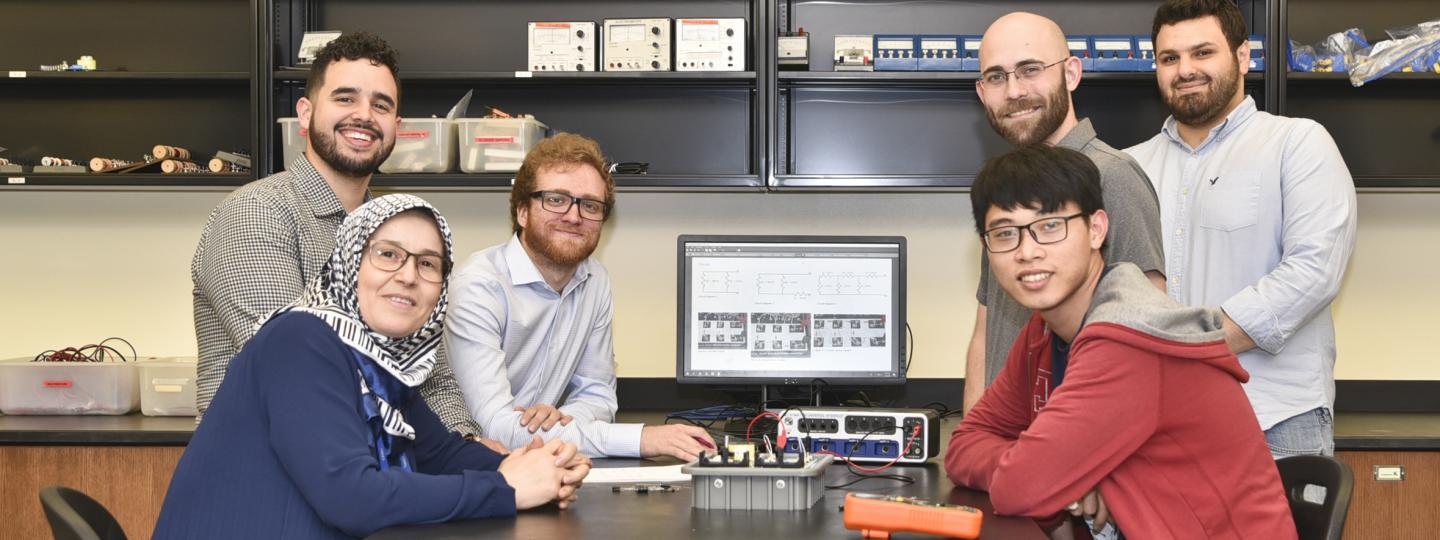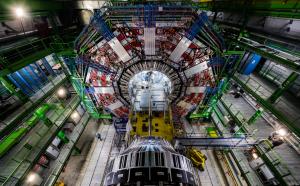Students selected for international physics internships at CERN

If you would have told Mitchell Clark and Rodolfo Ayala the first day of physics class with Dr. Laria Redjimi that they would be interning at the European Council for Nuclear Research, known in French as Conseil Europen pour la Recherche Nuclaire, in Geneva, Switzerland, they would have laughed in disbelief.
This summer, these San Jacinto College students will get the experience of a lifetime, working alongside internationally renowned scientists, faculty, and other students from all over the world, assisting with groundbreaking research on experimental and theoretical particle physics.
So what is particle physics? It's the branch of physics that studies the elementary constituents of matter and radiation, and the interactions between them. It's sometimes referred to as "high energy physics" because many elementary particles do not occur under normal circumstances in nature but can be created and detected during energetic collisions of other particles in particle accelerators. Plainly speaking, when these extremely high, energetic collisions occur, scientists get an inside look at the quarks, the composite particles that make up protons and neutrons.
CERN is home to the Compact Muon Solenoid, a general-purpose detector at the Large Hadron Collider, the world's largest and most powerful particle accelerator.
"The first thing they will learn is true meaning of collaboration, where they will interact with graduate students, engineers, and physicists from around the world — all gathered to share their knowledge to achieve one single goal," said Redjimi, San Jacinto College physics professor. "The most important part of collaboration is communication. Being on teams with members from other countries and cultures will be so beneficial for their future careers in any industry they pursue. This is truly a life-changing experience that will open so many doors for them."
In addition to teaching at San Jacinto College, Redjimi is also an experimental particle physicist adjunct professor at Rice University and a member of the CERN Compact Muon Solenoid collaboration experiment.
Collaboration itself lies at the heart of obtaining these incredible internships for her students. In 2007, prior to her faculty position at San Jacinto College, Redjimi began working as a research scientist with Rice University's particle physics group working on the CMS. Still wanting to participate in Rice's particle physics group research and find undergraduate research opportunities for her students, Redjimi formed a collaborative partnership with Dr. Paul Padley, Rice University physics professor and the U.S. CMS Operations Manager, which provides opportunities for her students to participate in the highly competitive and coveted CERN internships.
Redjimi says she selects students based on the required criteria but also according to each student's strengths.
"CERN's internship selection criteria consist of demonstration of leadership, critical thinking, open-mindedness, and great communication skills," Redjimi said. "Many people think that faculty select students based on grades alone, but it's so much more than that. I chose students based on their contributions in class and to their group research projects. I also look for students who have a genuine curiosity and an overall great work ethic."
Both Clark and Ayala will assist with the CMS system upgrade, replacing various electronic components to improve the detector's performance and contributing to CMS hardware and software, such as connecting cables, replacing and testing electronic boards, writing code, etc., all of which will allow for the discovery of new physics opportunities.
Not only will her students be working at CERN this summer, but Redjimi will also be making a visit as well. Due to the College's interest in collaborating on the CMS experiment, she will give a presentation to the board members for the CERN CMS Experiment, advocating for San Jacinto College's institutional affiliation status. If approved, Redjimi would be the first community college professor invited to serve as a board member at CERN.
"None of this would be possible without the support of people who believe in what you're doing and the opportunities you want to cultivate for our students," she said. "Our campus provost Dr. Brenda Jones; dean of health and natural sciences Dr. Alexander Okwonna; department chair of physical sciences Dr. Christopher Wild; and Dr. Padley at Rice have been instrumental in helping to secure this opportunity with CERN. I am getting requests from students who just want an opportunity to observe classes and the research students are doing to prepare for these internships. We really strive to provide our students with the most unique, once-in-a-lifetime opportunities to enhance their educational and professional careers in STEM industries."
Learn more about San Jac's STEM programs.
Above: San Jacinto College students Mitchell Clark (left, back) and Rodolfo Ayala (left, center) will be traveling to Geneva, Switzerland this summer to participate in the CERN internship program. Also pictured: Dr. Laria Redjimi, San Jacinto College physics professor (left, front) and students (back to front) Ahmad Al Abdallah, Anthony McIntyre, and Huan Tran, contributing San Jacinto College undergraduate research students for Rice University's particle physics group.
CERN photo courtesy of Maximilien Brice

